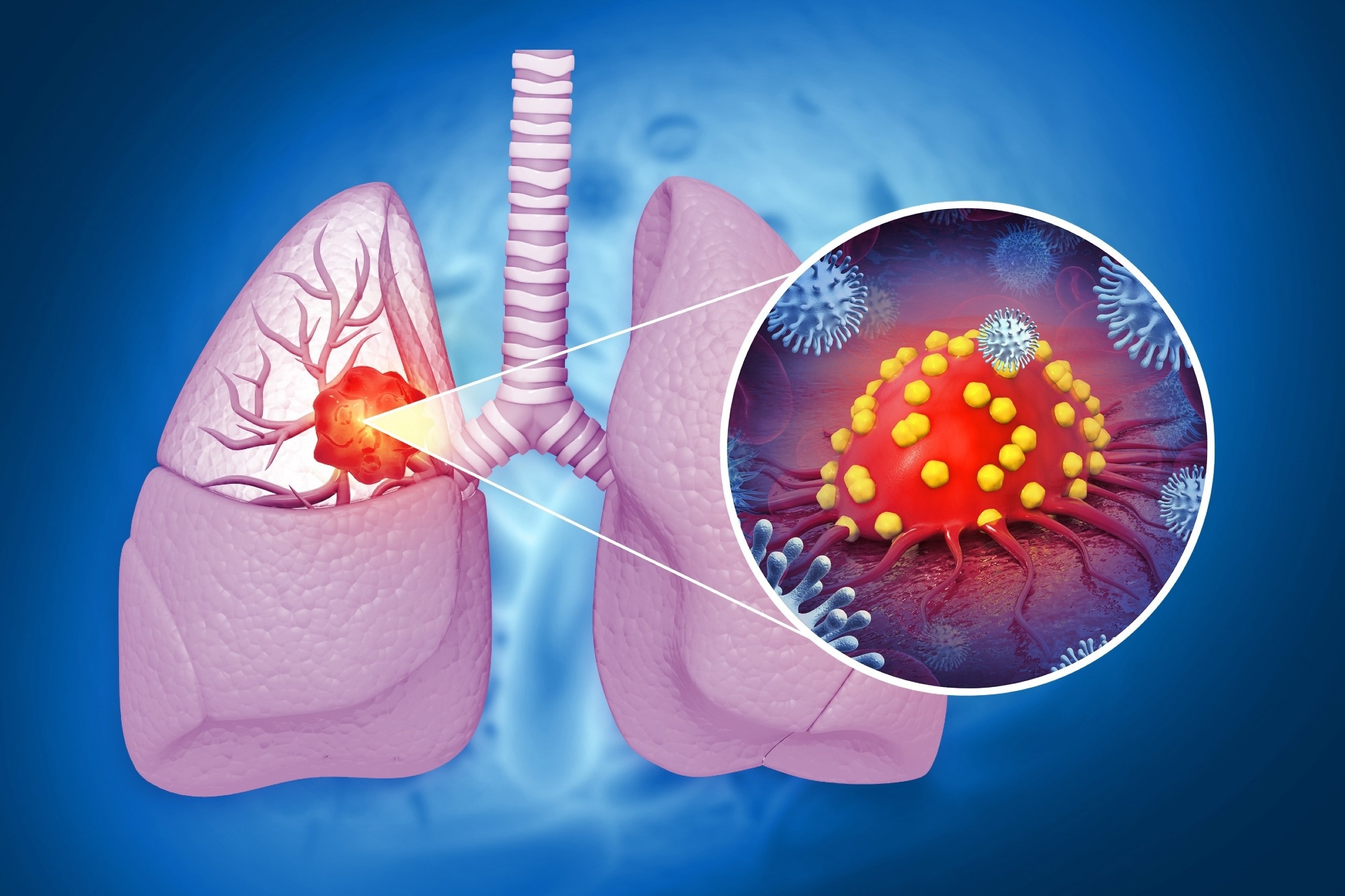Could your allergies be protecting you? This large-scale study finds a surprising link between common allergies and reduced lung cancer risk, especially for men and those with allergic rhinitis.
Review: Correlation between allergic diseases and lung cancer: a systematic review and meta-analysis. Image Credit: crystal light / Shutterstock
In a recent study published in Frontiers in Medicine, researchers examined the relationship between allergic diseases and the risk of developing lung cancer.
Allergies and cancers are increasingly recognized as major health concerns in both developing and developed countries. Lung cancer is among the most prevalent cancers worldwide, with around 2.26 million cases reported in 2019. The number of lung cancer cases and deaths has increased by 26% and 20%, respectively, between 2010 and 2019. Meanwhile, lung cancer-attributable disability-adjusted life years increased by 16%.
The relationship of allergic diseases with lung cancer risk
The relationship of allergic diseases with lung cancer risk varies by the type of allergy. For instance, a history of asthma is associated with a higher lung cancer risk, whereas a history of allergic rhinitis (AR) or eczema may reduce the risk. Asthma, although an allergic disease, was intentionally excluded from this meta-analysis to ensure methodological homogeneity and avoid confounding, given its established association with an increased risk of lung cancer.
According to one hypothesis, allergies may reduce the risk of lung cancer through increased immunoglobulin E (IgE)-mediated immune surveillance, which may help eliminate malignant cells in their early stages. Conversely, another hypothesis suggests that chronic immune stimulation may induce random mutations in rapidly dividing cells, thereby increasing the risk of cancer.
The authors also note that allergic reactions may play a dual role, being detrimental at primary sites of inflammation but potentially protective at distant sites. An integrative hypothesis suggests that the interplay of immune surveillance, chronic inflammation, and immune skewing underlies the relationship between allergy and cancer. These hypotheses provide distinct insights into the complex relationship between allergies and cancer. Despite the increased interest, there is substantial uncertainty and contention about specific associations between AR, eczema, and lung cancer.
The study and findings
In the present study, researchers meta-analyzed the associations of AR and eczema with lung cancer risk. First, they conducted a systematic literature search on Web of Science, Embase, Cochrane Library, and PubMed databases to identify relevant studies. Eligible studies were case-control or cohort studies assessing the association between allergic diseases and lung cancer risk.
Relevant data, including study design, geographic region, participant characteristics, and results, were extracted from the selected studies. The Newcastle-Ottawa Scale was used to assess the quality of studies and rate them as having low, moderate, or high quality.
The associations between allergic diseases and the risk of lung cancer were assessed using random and fixed effects models. Heterogeneity was evaluated using the I-squared statistic and chi-squared test. Sensitivity analyses indicated that no single study significantly influenced the overall effect size, supporting the robustness of the findings.
The search protocol yielded 226 studies. Following deduplication, title/abstract screening, and full-text reviews, 10 studies were selected for the meta-analysis. Of these, eight were case-control studies and two were cohort studies, cumulatively encompassing over 3.8 million participants.
Sample sizes ranged between 302 and 1.74 million individuals. AR and eczema diagnoses were made through serum IgE measurements or questionnaires. Lung cancer was diagnosed through pathological histology or by using International Classification of Diseases (ICD) codes, specifically ICD-9 or ICD-10.
Three studies were rated as of moderate quality, and seven as of high quality. The meta-analysis indicated that allergic diseases were inversely associated with the risk of lung cancer. Despite significant heterogeneity among studies, sensitivity analyses revealed that no individual study had a substantial impact on the overall effect size.
Further, subgroup analyses were performed by gender, allergy type, and geographic region. Overall, there was no significant association between eczema and the risk of lung cancer. By contrast, there was a negative correlation between AR and lung cancer risk. Specifically, allergic rhinitis was associated with 26% lower odds of lung cancer (OR 0.74, 95% CI: 0.64–0.86), and eczema showed no statistically significant association (OR 0.73, 95% CI: 0.51–1.06).
Further, a negative association was observed between allergic diseases and lung cancer risk in males. Notably, there was a negative correlation between eczema and lung cancer risk in males. In females, a negative correlation was observed between allergic diseases and lung cancer risk, but there was no association between AR and lung cancer risk.
In men, the odds ratio for allergic diseases and lung cancer was 0.56 (a 44% lower odds); in women, it was 0.71 (a 29% lower odds). Furthermore, seven studies conducted in the American continents found a negative correlation between AR and lung cancer risk, as well as no association between eczema and lung cancer risk.
Conclusions
In sum, the meta-analysis revealed that individuals with allergies had one-fourth lower odds of developing lung cancer than those without allergies. There was a significant inverse association between AR and lung cancer risk, especially in males and populations from the American continents. While there was no significant association between eczema and lung cancer risk overall, a negative association was observed in males.
The study’s limitations include a small sample size, limited generalizability due to the predominantly American continent-based participant population, and potential misclassification bias resulting from the reliance on self-reported diagnoses in most studies. Most included studies diagnosed allergies using questionnaires, which may introduce recall or diagnostic bias.
Further studies are needed to uncover the underlying pathophysiological mechanisms of this association. The authors highlight the need for future epidemiological research to clarify these relationships and inform risk assessment and prevention strategies.
